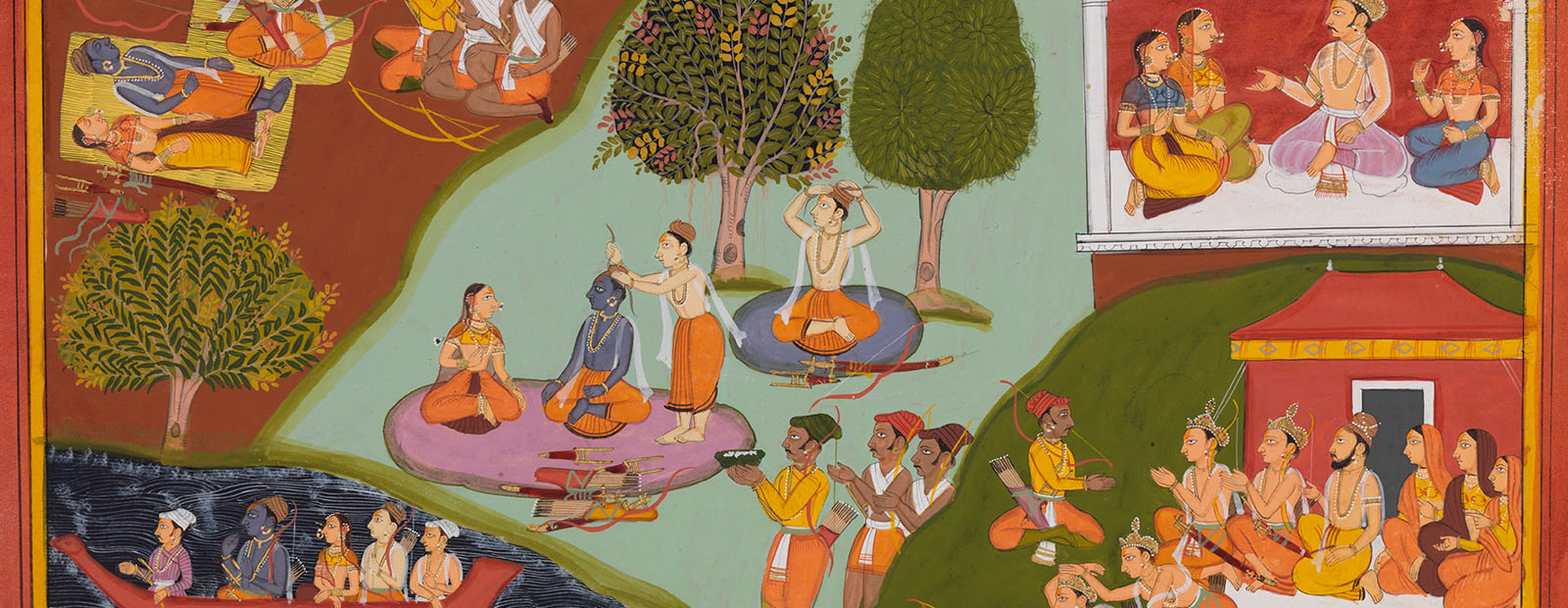The Ramayana is the most celebrated epic poem in South and Southeast Asia. It tells the journey of prince Rama, from his banishment from the kingdom of Ayodhya, to his triumphant return. Denied the throne on the eve of his coronation, Rama finds himself exiled to the forest for 14 years, accompanied by his devoted wife and brother, Sita and Lakshmana.
We've created a puzzle from a painting that depicts a scene near the beginning of Rama's exile. Visit the virtual exhibition for "Tell the Whole Story from Beginning to End": The Ramayana in Indian Painting to familiarize yourself with the narrative.
Click here to see the entire painting.
Indian paintings can contain many scenes within a single image; sometimes, text that appears at the top of an image will offer instructions on how to "read" the painting. As you complete this puzzle, look for the following moments:
- In the bottom right corner, Guha, chief of a forest tribe called the Nishadas, reports his earlier encounter with Rama to Bharata outside of his royal tent.
- At top left, Guha converses with Lakshmana, who watches over Rama and Sita as they sleep on the forest floor, about the precarious state of Ayodhya.
- At top right, Dasharatha, Rama's father is surrounded at court by his three queens. Guha then explains how, taking on ascetic garb, Rama matted his hair with the sap of a banyan tree (center), prior to crossing the Ganges River, ferried by Guha (bottom left).
- The story ends in the bottom right, where Bharata appears again, collapsing in grief after hearing of Rama’s arduous journey.
- In reaction to Rama’s untimely exile, the painting illustrates multiple forms fraternal piety: Lakshmana’s steadfast devotion and Bharata’s pious grief. One joins Rama in his forest trial; the other must endure his absence, reluctantly ruling a kingdom bereft of its true king.





